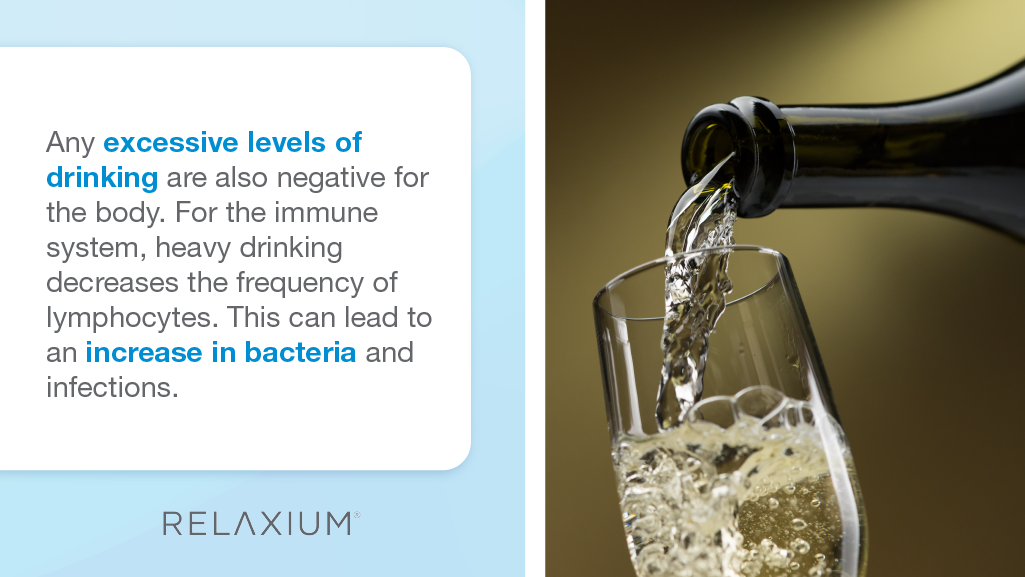Besides the common cold, there are different ways to tell if you have a weaker immune system. By tracking down these signs and following the tips provided, your chances of feeling sick will decrease! Let us explain.
From the dawn of time, we humans have faced issues of sickness. Immunity was challenging to obtain considering modern-day medicine was not present as it is today. Some of us are more prone to getting sick when the weather changes. Others simply have a weaker immune system. No matter where you lie there are ways to combat this.
The earliest diseases to exist
The first disease was the 10th-century virus; measles. The known physical symptom of measles was the rashes that appeared on the face and ears. If left untreated measles had a seriously damaging effect on the immune system.
The second disease faced in growing society was scarlet fever. Sore throats, vomiting, and of course fever were all symptoms of the disease. In the 1950s, penicillin was the medication most used to treat scarlet fever.
The third disease was known as rubella or German measles. Pink rashes would appear on the face.
All of these diseases were quite scary and this created the need for protection against serious diseases. Vaccines started to be created and used to help place a barrier and strengthen the immune system by injecting a weak, or inactive antigen of a germ. The body will not recognize the germ so it will create antibodies. These antibodies then aid in the protection of the person if they contracted a particular disease.
What exactly is the immune system?
The immune system in the human body consists of cells, tissues, organs, and the substances they create. All of these together create a powerful team that fights against diseases.
The team consists of:
- White blood cells
- The thymus
- Bone marrow
- Lymph nodes
- Lymph vessels
- Spleen
- Skin
In short, when a germ or substance that is foreign enters the body, the immune system activates and from there, attacks and kills the germ.

How to know if you have a weak immune system
Frequency of sickness. The average adult has around 2-3 colds a year. If you are experiencing sickness, especially of a high degree such as ear infections, pneumonia, or severe sinuses. Inflammation and infections in a high amount are also signs of a weakened immune system.
The average person does not get ear infections or pneumonia multiple times a year. These kinds of infections can pose a threat to the body.
What causes a weak immune system?
Lifestyle choices are some of the biggest indicators that can lead to a weak immune system.
- Diet: The human body requires nutrients. When there is a deficiency of these needed nutrients, naturally the immune system can take a hit. A deficiency of nutrients like zinc, iron, and vitamins has the ability to alter the immune response in the presence of germs.
- Tobacco: Nicotine has a very negative effect on the body; this is known. Tobacco messes with so many physical factors, especially the balance of the immune system. Not to mention the increased risk of autoimmune diseases.
- Alcohol: Any excessive levels of drinking are also negative for the body. For the immune system, heavy drinking decreases the frequency of lymphocytes. This can lead to an increase in bacteria and infections.
- Minimal exercise: It is always beneficial to have some form of physical exercise at least once a week. Cardio, as we know, is good for heart health. Lifting is good for strength building. A combination of these is fantastic for the immune system because exercise changes antibodies and white blood cells. By doing this, the body can detect germs much faster.
- Poor hygiene: It sounds like common sense but it needs to be addressed. Hygiene is crucial for the immune system. Washing your hands, bathing, and caring for oral health help the immune system remain strong.

Like a math equation solving for better immunity, plug in the numbers
We have listed for you numerous reasons that lead to a weakened immunity so with that said, let’s try to do the opposite.
- Maintain a regularly healthy, well-balanced diet with lots of vitamins and nutrients.
- Consider getting rid of any and all nicotine. Tobacco is harmful to the body and the faster you realize and make changes to quit, the better you will start to feel.
- Don’t drink heavily, just like tobacco, alcohol has close to zero positive effects. Especially if you are constantly fighting against sickness.
- Try to get some daily or weekly exercise into your schedule. We know this can be difficult sometimes but it can be good to start off small. Take some walks every now and then or pick up some free weights. Anything that will get your blood pumping. Those endorphins will make you feel great!
- Improve your hygiene routine. Don’t skip the shower or only run your hand under the faucet for a few seconds. The more you get into these routines the more natural it will feel. Before you know it you will never be able to skip or rush through these processes again.
Consider the last time you got sick. Remember how frustrating it is knowing you have no control over your body. You have to worry about finding the right medicine and getting enough sleep; all while you may have a demanding job or a family. We take for granted how we feel when we are not sick.
Our bodies are machines and they try their best, but they are not indestructible. We all get sick. If you realize you are finding yourself getting sick much more often than usual then it may be time to look at the choices you make.

Here’s to building that strong immune system
Usually, there is always some sort of solution. Luckily in this case there is! We hope this has provided you with some tips that you can use the next time you worry about how you may be affected when the seasons change. Until then, good luck!
To restful and healthy days ahead.
The Relaxium Team
*These statements have not been evaluated by the Food & Drug Administration. This product is not intended to diagnose, treat, cure, or prevent any disease.
Sources:
https://www.bmj.com/content/bmj/351/bmj.h3525.full.pdf
https://www.cancer.gov/publications/dictionaries/cancer-terms/def/immune-system
https://www.cdc.gov/tobacco/sgr/50th-anniversary/pdfs/fs_smoking_overall_health_508.pdf

